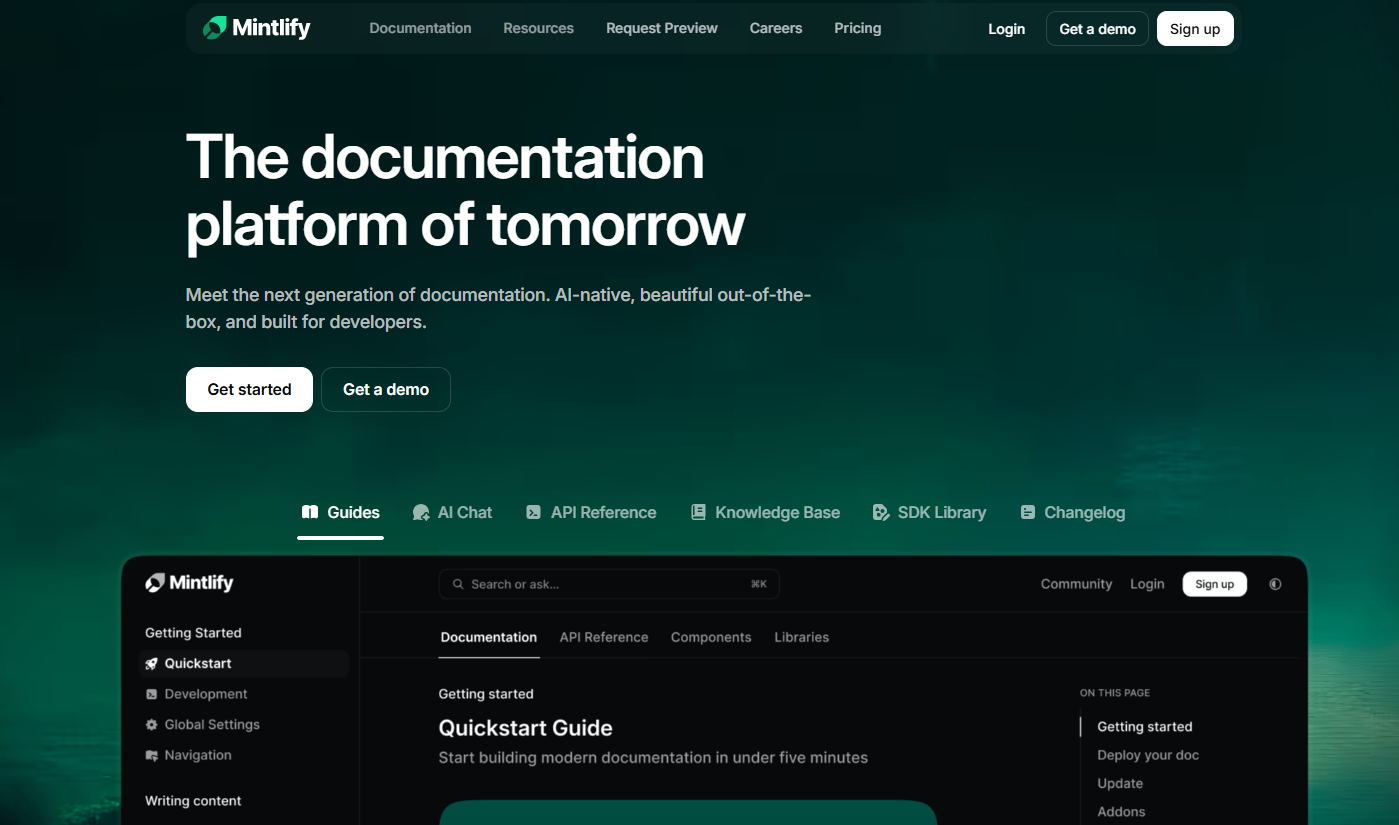

Mintlify turns product knowledge into docs developers actually use. Import OpenAPI to build interactive references with a Try It console, generate SDKs and code samples, and write guides with AI that adapts tone. Versioning, changelogs, and localization keep releases coherent. Git-based workflows, roles, and analytics connect docs to CI so teams review, publish, and improve content without drift or guesswork. Search, theming, and controls make portals feel first-class.
Draft guides from code comments, types, and request logs, then edit with AI that respects domain terms and examples. Quality checks flag broken links, missing params, and outdated snippets so trusted patterns replace tribal knowledge over time. Preview in pull requests to review diffs like code, and copy-to-clipboard telemetry highlights examples that deserve promotion. Combined signals turn anecdotal fixes into a measurable cycle of improvement for teams.
Import schemas to generate interactive reference pages with auth, pagination, and rate-limit notes. Try-it consoles execute real calls in a secure context; search spans guides, changelogs, and versions to surface answers fast. Guided auth steps, error catalogs, and usage limits reduce friction for new integrators while protecting production systems. Clear concepts, parameters, and models keep implementers aligned, cutting guesswork across languages and stacks.
Produce SDKs in popular languages from your API schema, and keep samples in sync as endpoints evolve. Publish packages with version pins, and surface idiomatic patterns so integrators adopt best practices from the first request. Sample galleries demonstrate typical flows end-to-end, and linters block merges when snippets drift from current contracts. With predictable scaffolds and docs that compile, onboarding moves from trial-and-error to repeatable success.
Ship side-by-side versions with clear deprecation windows; announce changes with human-readable release notes. Translation workflows and string fallbacks maintain clarity as teams add locales across product lines. Diff views highlight what changed between releases, while redirects preserve SEO and gently guide readers to the right edition. Version pins and compatibility badges reduce support confusion, especially during rapid iteration or multi-service rollouts.
Connect GitHub and CI for review gates; collect inline feedback and reactions to prioritize fixes. Role-based access, SSO, and audit trails keep governance tight while dashboards reveal search failures and time-on-page. Webhooks and BI exports share metrics with product analytics, and componentized blocks ensure design consistency throughout the portal. Signals identify unclear steps before launch, preventing ticket spikes and rework after releases.


Recommended for platform teams, DevRel, SaaS vendors, and open-source maintainers who need docs to drive adoption. Mintlify unifies references, guides, and SDKs under a versioned, searchable portal with governance and analytics. Engineers keep velocity through Git-based workflows; partners and customers get clear examples that compile, run, and scale in production. Support and solution teams benefit from error catalogs that turn incidents into updated guidance.
Scattered wikis and stale READMEs slow integration and cause support churn. Mintlify centralizes documentation, generates references and SDKs from the source of truth, and ties feedback to CI so updates ship with releases. The outcome is faster onboarding, fewer breaking misunderstandings, and a portal teams trust—because examples stay accurate and decisions are traceable. Docs evolve with code instead of drifting, and analytics surface what needs clarity early.
Visit their website to learn more about our product.


Grammarly is an AI-powered writing assistant that helps improve grammar, spelling, punctuation, and style in text.

Notion is an all-in-one workspace and AI-powered note-taking app that helps users create, manage, and collaborate on various types of content.
0 Opinions & Reviews